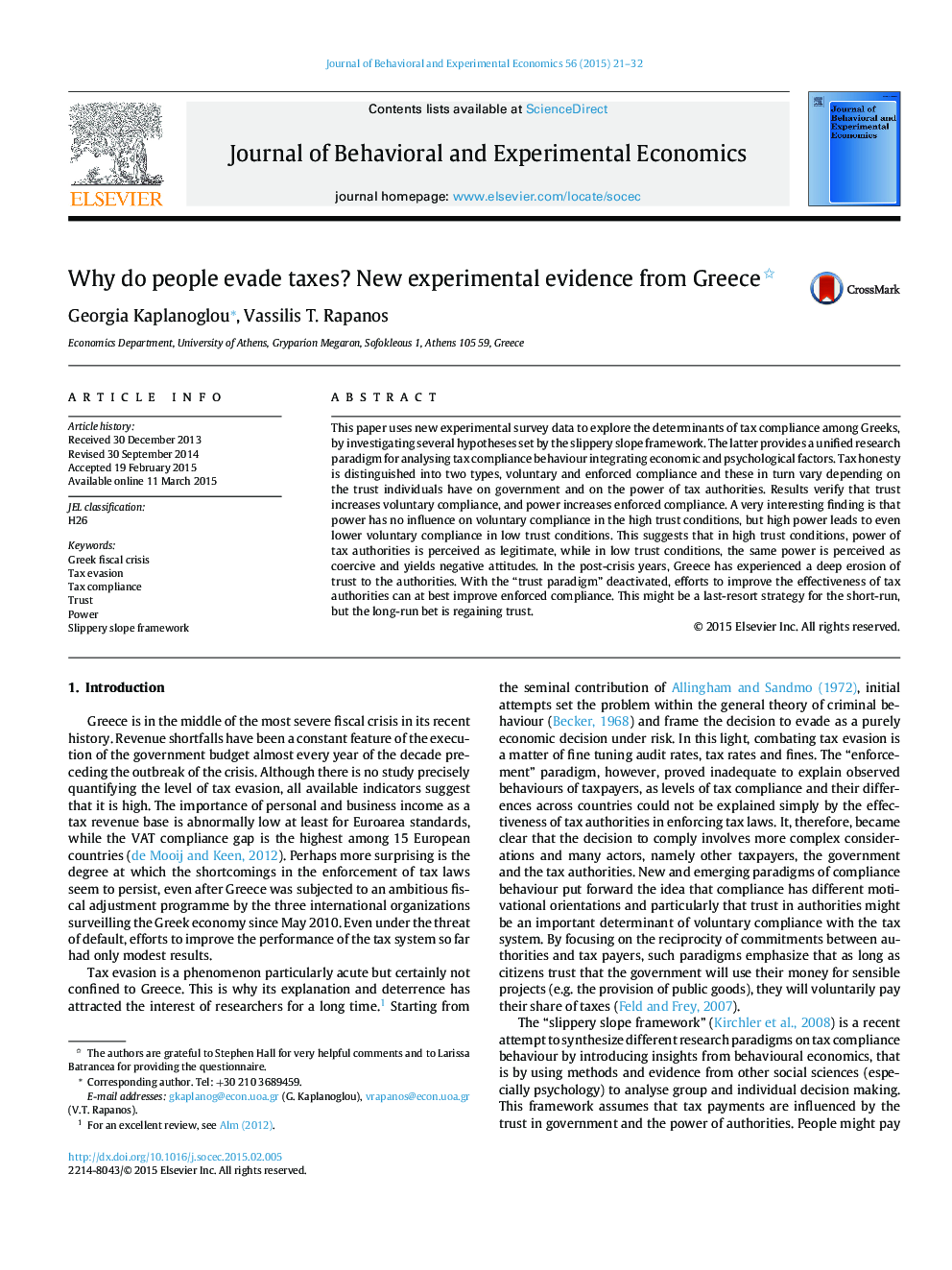| Article ID | Journal | Published Year | Pages | File Type |
|---|---|---|---|---|
| 7242074 | Journal of Behavioral and Experimental Economics | 2015 | 12 Pages |
Abstract
This paper uses new experimental survey data to explore the determinants of tax compliance among Greeks, by investigating several hypotheses set by the slippery slope framework. The latter provides a unified research paradigm for analysing tax compliance behaviour integrating economic and psychological factors. Tax honesty is distinguished into two types, voluntary and enforced compliance and these in turn vary depending on the trust individuals have on government and on the power of tax authorities. Results verify that trust increases voluntary compliance, and power increases enforced compliance. A very interesting finding is that power has no influence on voluntary compliance in the high trust conditions, but high power leads to even lower voluntary compliance in low trust conditions. This suggests that in high trust conditions, power of tax authorities is perceived as legitimate, while in low trust conditions, the same power is perceived as coercive and yields negative attitudes. In the post-crisis years, Greece has experienced a deep erosion of trust to the authorities. With the “trust paradigm” deactivated, efforts to improve the effectiveness of tax authorities can at best improve enforced compliance. This might be a last-resort strategy for the short-run, but the long-run bet is regaining trust.
Related Topics
Social Sciences and Humanities
Economics, Econometrics and Finance
Economics and Econometrics
Authors
Georgia Kaplanoglou, Vassilis T. Rapanos,
